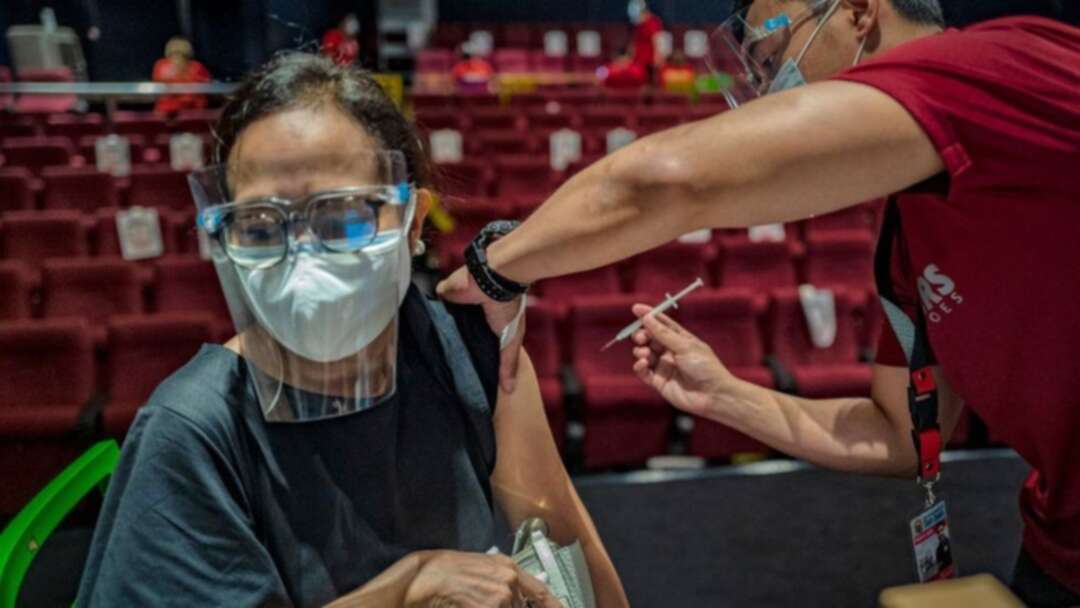-
WHO approved Chinese’s Sinovac Covid vaccine

The World Health Organization (WHO) gives approval to China's Sinovac Covid vaccine for emergency use. It is the second Chinese vaccine to receive the green light from the WHO, after Sinopharm.
The WHO said it prevented symptomatic disease in 51% of those vaccinated and prevented severe symptoms and hospitalization in 100% of samples.
Some evidence and data gaps are still lacking though, according to WHO experts.
The approval opens the door for the jab to be used in the Covax programme, which aims to ensure fair access to vaccines.
The vaccine, which has already been used in several countries, has been recommended for over 18s, with a second dose two to four weeks later.
The emergency approval means the vaccine "meets international standards for safety, efficacy and manufacturing", the WHO said.
A study in a Brazilian city saw a 95% drop in Covid deaths after it vaccinated almost all of its adults with Sinovac.
Serrana, in the Southeastern Brazilian state of Sao Paulo, is home to 45,000 residents. Once 75% of its population was vaccinated, the number of cases and hospitalisations fell, according to the study.
It is hoped that the decision to list the Chinese vaccine for emergency use will give a boost to the Covax initiative, which has been struggling with supply problems.
"The world desperately needs multiple Covid-19 vaccines to address the huge access inequity across the globe," said Mariangela Simao, the WHO's assistant director general for access to health products.
"We urge manufacturers to participate in the Covax facility, share their know-how and data and contribute to bringing the pandemic under control," she said.
China says it has already produced 10 million doses of Covid vaccines for the Covax scheme and that it aims to hit 3 billion doses by the end of the year.
As well as China, the vaccine is already being administered in countries including Chile, Brazil, Indonesia, Mexico, Thailand and Turkey.
One of Sinovac's main advantages is that it can be stored in a standard refrigerator at 2-8 degrees Celsius.
This means Sinovac is a lot more useful to developing countries which might not be able to store large amounts of vaccine at low temperatures.
The emergency approval came as the heads of the WHO, the World Trade Organisation, the International Monetary Fund and the World Bank appealed for a $50bn (£35bn) investment fund to help end the pandemic.
In a joint statement they said the world had reached a perilous point, and that inequalities in access to vaccines risked prolonging the pandemic, and many more deaths.
They have called for the money to be invested in areas including vaccine production, oxygen supplies, and Covid-19 treatments, ensuring they are distributed fairly.
They also called on wealthy countries to donate vaccine doses immediately to developing nations.
Source: BBC
Image Source: Getty Images-BBC
You May Also Like
Popular Posts
Caricature
BENEFIT Sponsors BuildHer...
- April 23, 2025
BENEFIT, the Kingdom’s innovator and leading company in Fintech and electronic financial transactions service, has sponsored the BuildHer CityHack 2025 Hackathon, a two-day event spearheaded by the College of Engineering and Technology at the Royal University for Women (RUW).
Aimed at secondary school students, the event brought together a distinguished group of academic professionals and technology experts to mentor and inspire young participants.
More than 100 high school students from across the Kingdom of Bahrain took part in the hackathon, which featured an intensive programme of training workshops and hands-on sessions. These activities were tailored to enhance participants’ critical thinking, collaborative problem-solving, and team-building capabilities, while also encouraging the development of practical and sustainable solutions to contemporary challenges using modern technological tools.
BENEFIT’s Chief Executive Mr. Abdulwahed AlJanahi, commented: “Our support for this educational hackathon reflects our long-term strategic vision to nurture the talents of emerging national youth and empower the next generation of accomplished female leaders in technology. By fostering creativity and innovation, we aim to contribute meaningfully to Bahrain’s comprehensive development goals and align with the aspirations outlined in the Kingdom’s Vision 2030—an ambition in which BENEFIT plays a central role.”
Professor Riyadh Yousif Hamzah, President of the Royal University for Women, commented: “This initiative reflects our commitment to advancing women in STEM fields. We're cultivating a generation of creative, solution-driven female leaders who will drive national development. Our partnership with BENEFIT exemplifies the powerful synergy between academia and private sector in supporting educational innovation.”
Hanan Abdulla Hasan, Senior Manager, PR & Communication at BENEFIT, said: “We are honoured to collaborate with RUW in supporting this remarkable technology-focused event. It highlights our commitment to social responsibility, and our ongoing efforts to enhance the digital and innovation capabilities of young Bahraini women and foster their ability to harness technological tools in the service of a smarter, more sustainable future.”
For his part, Dr. Humam ElAgha, Acting Dean of the College of Engineering and Technology at the University, said: “BuildHer CityHack 2025 embodies our hands-on approach to education. By tackling real-world problems through creative thinking and sustainable solutions, we're preparing women to thrive in the knowledge economy – a cornerstone of the University's vision.”
opinion
Report
ads
Newsletter
Subscribe to our mailing list to get the new updates!






















